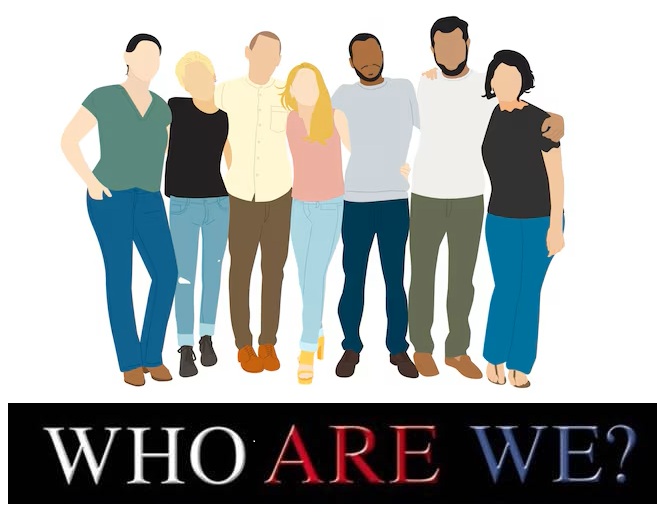Faith is Required
Among the four Gospel’s of the New Testament, the Gospel of Luke is my favorite. Although we call the Book of Luke a Gospel, it’s actually an account, a report written that validates what was heard by one named Theophilus. The Acts of the Apostles, which continues where the Book of Luke ends is also written to Theophilus. Biblical scholars do not actually know the identity of Theophilus but the name means, “friend of God.” I am more readily inclined to accept that Luke’s writings were written to believers as a collective identifying them as Theophilus, “friends of God” (John 15:15; James 2:23). Luke was not an Apostle but a physician who traveled with the Apostle Paul when he met him in Troas (Acts 16:6-12). For me, Luke’s Gospel is “A Social Workers’ Gospel” because of stories highlighting people with whom many did not associate.
Every time I read the Gospel of Luke; I am reminded of my own experiences with people who many would not associate. During my last year at seminary, I was completing my Clinical Pastoral Care credits at a local hospital. My assignment was to meet with patients, inform them of my availability and provide spiritual comfort and support. One patient I met was Luis (his real name) who had HIV/AIDS. Luis, because of the stigma called it a blood infection so the words HIV/AIDS were never used in conversation. Luis was hesitant to talk to me that first; I was wearing a face mask because as doctors were testing for Hepatitis. He asked why I was wearing a mask and I said in quick response, “To protect you from getting any of my germs, (so I lied)” …he understood. I few days later I visited Luis without a mask, sat beside him on his bed, took his hand and said a few words to him to get to know him. We did not talk about God or Church until he was ready. Luis wore a rosary his mother gave to him, but he was Pentecostal. Luis accepted me and allowed me to pray and would expect me each day at the same time. Luis always gave me his hand to hold and knew I would sit beside him on his bed. He even asked me to read a few Psalms to him.
During one of my visits, I was informed by the nurse that Luis was not eating. I discovered he was fasting for healing. As I was sitting next to Luis, a psychiatrist stood at the doorway to Luis’s room speaking loudly to Luis concern about his lack of eating which the psychiatrist was a “suicidal ideation.” Luis turned to me asking why he was shouting and to have him come closer. The psychiatrist asked me what Luis saying and I said, “If you would come here, you would be able to hear Luis. Luis wants you to come closer and not shout at him from the doorway. The psychiatrist replied that it was okay he would come back later; he never did. The psychiatrist was afraid he would get AIDS if he got close to Luis. I guess the psychiatrist wondered why I was sitting so close to Luis. Luis knew he was accepted and that he was loved; he called me his brother. I cried, the day Luis died; I was there and my supervisor, the Clinical Pastor of the hospital understood why.
The message at the Thanksgiving Eve Service held at Grace Community Church in Herndon, PA in November of 2018 highlighted a common group of marginalized and unwelcomed group of people; Lepers. The Pastor, Doug Weygand read from the Gospel of Luke chapter 17 and I was interested in hearing what the Pastor was going to say.
While on his way to Jerusalem passing through Galilee and Samaria, Jesus heard a group of lepers (Luke writes there were ten) standing at a distance far away from the crowd crying out to Jesus for mercy. Jesus turned and told them to go and present themselves to a priest and, while on their way, the ten lepers saw that they were immediately healed. One of the ten, seeing that he was healed immediately turned around and ran back to Jesus while praising God on the way. This leper fell at Jesus’s feet and thanked him. Jesus asked about the others, where were they seeing only the one at his feet. [Sidebar: this is one of the reasons why I like the Gospel of Luke. Luke adds to this account; “and he was a Samaritan.”] Not only was this man not accepted into the community because he was a leper, but he was also a Samaritan, scorned by the Jewish people who did not associate with Samaritans (John 4: 5-9). By adding this comment, Luke reminds us of his earlier account of “The Good Samaritan,” who was more of a neighbor to the injured victim on the road than were the Jews.
The point the Pastor Weygand made in retelling this account was this; the ten were all healed physically but only one; who glorified God (praising God publically) and thanking Jesus while kneeling at his feet was made completely whole because Jesus said, “Arise, go thy way: thy faith hath made thee whole” (Luke 17:19). Jesus healed many people during his three years of ministry. But few have come to know complete healing; physically (body), mentally (mind) and soul (spiritually); the Roman Solder, and Zacchaeus are but a few (Luke 7 and 19) who had complete faith and who were not accepted by the Jewish people. When was the last time you heard, “Arise, go thy way; thy faith hath made thee whole.” Micah 6:8 says, “and what does the Lord require of you, but to do justly, and to love mercy, and to walk humbly with your God.” Go and do likewise; your faith will make you whole.





Comments
Post a Comment